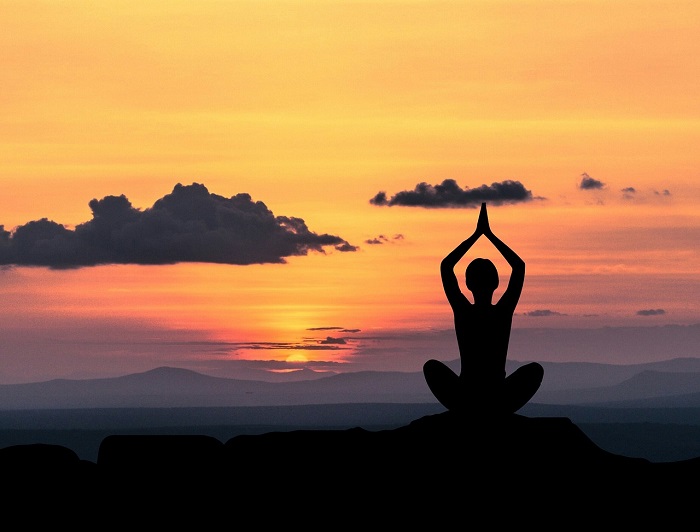The Effects of Negative Self-Talk on Your Finances (And How to Fix It)
Your mind has a constant inner chatter running in the background. Most of the time, you barely notice it. But when it comes to money, negative self-talk can quietly shape your financial reality in powerful ways.
When you think of money, what image comes to mind? Coins, cash, a bank balance. But what thought follows that image? Is it freedom and possibility — or stress, limitation, and “I can’t afford it”? That immediate reaction is your financial self-talk.
This isn’t just mental noise. The way you speak to yourself about money influences your decisions, your confidence, and ultimately your financial outcomes. To truly understand its effects, you have to look deeper at the beliefs driving those thoughts — something we’ll explore in this post.
We’ll examine how your inner dialogue connects to your current financial situation and, more importantly, what you can begin doing to shift it. Change may not be instant, but with awareness and consistent effort, it is possible. When I became aware of my own money beliefs, I finally understood why my financial reality looked the way it did — and how it was affecting the rest of my life. That realization is what this post aims to bring to light.
Change Your Inner Conversation – Neville Goddard’s Powerful Exercise
One of the authors who has given me profound insights into how our creative power works is Neville Goddard. In one of his books, I recently came across a powerful teaching about changing our inner conversations, which helped me address a few real-life situations. No matter how much we study the mind and the power of thoughts, it’s easy to overlook some of the most crucial principles.
What struck me as truly unique about this chapter on inner dialogue is the perspective it offers. While most personal development methods emphasize self-talk and focus mainly on what we think about ourselves (which is indeed important), Neville highlights another overlooked dimension. He explains that we must also pay attention to what we think about others, because our inner conversations about them might actually be influencing their behavior toward us.
This is something that requires careful reflection: What are our thoughts when we think about the people in our lives? Not just those who are very close to us, but also those who may seem less significant yet still play a role in our individual world. How often do we replay old dialogues with them in our minds—things they said that hurt us, words we wish we could say in response, or expectations we have of them? Believe it or not, this mental replay happens frequently. One key reason we might speak negatively about others behind their backs is that we carry a lot of unexpressed thoughts about them.
From early childhood, humans are taught to focus on external circumstances. Our usual response to hostile or challenging behavior has been either to distance ourselves from such individuals or confront them directly. While there is nothing inherently wrong with these approaches—and sometimes they are necessary—it is essential to understand that our inner state and the way we perceive the world are far more significant than the actions we take. Often, working on our beliefs and thoughts about others can lead to remarkable changes in our interactions and emotional well-being.
Is Meditation or Mindfulness Making You Lazy? Debunking Myths and Finding Balance
I have often heard people say that while meditation helps them achieve mental peace and emotional control, they feel it negatively impacts their work. They describe becoming less driven or even a bit lazy after practicing mindfulness or other meditation techniques. While I understand that such experiences can happen, it’s essential to delve deeper to uncover the reasons behind these feelings.
Sometimes, people feel that meditation makes them less socially interactive or that they’re no longer as “fun” to be around. Others might even worry that these practices are making them less interesting as individuals.
The first thing to understand here is that the truth is not always what we perceive, we often judge ourselves too much when we are around others and begin to think thoughts that are not really relevant to the actual situation. It is like working out for a few days and feeling that you have not achieved any good results whereas any remark from others or even the slightest hint that you are not fit will make you think negatively about the activity altogether.
However, the key factor at play here is your “ego” or “psyche”—or what I prefer to call your “self-image.” I use this term frequently and delve into it extensively throughout my blog. There’s something within us—a kind of protective mechanism—that resists major changes in our lives. It works to maintain the status quo, as any change is often perceived as a potential threat to our sense of stability and familiarity. Continue reading
Is There Another Me in Another Universe? (Parallel Worlds Theory)
Imagine waking up in an entirely different world where everything – your house, bank balance, friends, job, etc. – is entirely different, but you remain the same. I have been fascinated by the theory of parallel worlds to the extent that, at one point in my life, I was ready with a fictional storybook about it, which I may write someday. Today, I’m here to explain to you the concept of the multiverse and how various scientific theories and phenomena like quantum mechanics suggest that the existence of parallel worlds might be more than mere speculation or the imagination of a fiction writer.
I’ve come across numerous stories about people experiencing parallel worlds on Reddit and Quora. We can’t simply dismiss these accounts as lies or attribute them to some sort of psychological issue. If something like that were to happen to us, no one would believe us, and they would put us in the same category. The truth is subjective; your experience, coupled with your perspective on that experience, forms your truth. That’s why it’s essential to respect people’s opinions, no matter if their experiences feel real to you or not. I’m not advocating for promoting wild theories like reality shifting, which has been propagated using outlandish ideas about shifting consciousness to a world of your choice, causing a buzz on social media and perplexing teenagers these days. However, when someone shares their experiences, no matter how bizarre it may seem, we shouldn’t be quick to judge. Many tales related to aliens, ghosts, angels, etc., are often not shared due to the fear of ridicule. However, the subjective experience, regardless of whether it is objectively genuine or not, should be considered for serious discussion without disrespecting the person sharing it.
Suppose these theories are not just ideas but reality. Is there a probability that some other version of myself exists in another universe? Would I be the same person as I am in this reality there? These are some questions that I will try to answer with the help of this discussion. Continue reading
The Mirror Method for Building Self-Confidence and Self-Love
In a previous post long ago, I discussed mirror gazing meditation (Mirror Trataka), and in this article, I will introduce a simple ritual that I have personally developed to enhance self-confidence. Although it is not a traditional meditation method, it merges spiritual insights with techniques that I have previously utilized. Practiced with wholehearted commitment, this approach has the potential to significantly transform your self-perception and outlook on life.
So, this isn’t your typical mirror-gazing meditation. No need to stress about trying to stay super focused on your reflection or avoiding distractions. Instead, it’s a straightforward ritual inspired by popular personal development techniques like mirror work and positive self-talk. Plus, it takes a page from an ancient Hawaiian ritual, which I will dive into in this post later on. I am not here to guarantee it’ll work for everyone. I am just sharing an exercise I personally have used and have seen benefits from, hoping it might do the same for you.
How I Began to Use This Powerful Ritual
In one of his iconic speeches, the legendary figure in the field of self-improvement, Bob Proctor (may his soul rest in peace), whose work initially inspired me on my personal development journey, discussed a powerful ritual related to altering one’s self-image.
According to Bob Proctor, this ritual was something taught to Napoleon Hill (the author of the book “Think and Grow Rich“) by Dale Carnegie. The process involves mentally or verbally repeating a statement involving a person who inspires you, twice a day for at least 30 days. For instance, if your goal is to become a successful stock trader and your idol is Warren Buffett, you’d look into the mirror and say something like, “Warren Buffett, I’m not only going to match your achievements in life, but I’m going to challenge you at the post and surpass you at the grandstand.” This exercise is impactful, and while I won’t disclose the name I used, rest assured that the day I surpass that figure, you will know for sure, lol! Continue reading
3 Ways Mindfulness Can Help You Stop Boredom Eating
If you’ve been struggling to deal with boredom eating, and traditional methods haven’t yielded results, the most effective solution may well be mindfulness. There isn’t a method more potent than mindfulness to curtail emotional eating. The key lies in its ability to grant you profound control over involuntary actions. That’s why, in this post, I will illustrate how mindfulness can help you stop boredom eating.
Boredom eating is a type of emotional eating disorder stemming from various psychological factors that lead us to believe food can resolve our emotional challenges. We are conditioned to seek solace in food when feeling low or bored. However, terms like “emotional eating” should not overly preoccupy us, as people worldwide associate various emotions with food. This attachment often revolves around dishes triggering cherished childhood memories, while aversions might result from past negative experiences. Personally, I remember refraining from eating popcorn for an extended period after falling seriously ill once, even though popcorn wasn’t the cause. This exemplifies how our minds connect specific emotions to various foods based on individual experiences and memories.
I am sharing all this information to help you comprehend how our psychology operates and why we turn to snacking or overeating when we’re not feeling well. Even though boredom doesn’t necessarily equate to unhappiness, our minds struggle with it because, much like a child, it constantly seeks something engaging. The anticipation of taste and pleasure leads our minds to view eating as a perfect solution to alleviate boredom. Consequently, our minds persistently dwell on thoughts of food when we experience boredom. Continue reading
Jose Silva’s Mental Screen Visualisation Method for Manifestation
As a personal development enthusiast, I find it truly remarkable how Jose Silva possessed such profound knowledge of the human mind. His works remain not only relevant in today’s world but also widely used by people for various purposes. Many therapists have incorporated methods inspired by his teachings into their practice. In a decade when people showed little interest in exploring the power of the mind, albeit controversial, this man was pioneering and creating methods like the mental screen visualization method and how to manifest using such methods by exploring hypnotherapy and metaphysics to develop mind tools that were far ahead of his time.
If you explore the Silva Method and the techniques he employed in his courses, you will undoubtedly discover that he was indeed a pioneer in the field of personal development.
You may be familiar with various visualization methods. In this post, I will provide instructions on how to perform a specially crafted visualization technique developed by Jose Silva, known as the ‘mental screen technique.’ This technique is still widely used in training programs based on the Silva Method. Followers of this method claim it to be extremely helpful for manifestation, problem-solving, healing, self-improvement, and more because it is not only simple to use but also provides proper guidance on how to harness one’s imagination. We will explore how to perform this technique in later sections of this article, but first, let me introduce you to a few key concepts you should understand before we delve into the process. Continue reading
Why You Should Choose Brahma Muhurta for Meditation?
Do you know that there is a specific time period of the day known as the Brahma Muhurta, which is considered the best time for meditation? Whether you practice the law of attraction techniques like visualization or if you are a yoga enthusiast, knowing about this pre-sunrise time period can be highly beneficial. According to ancient yogic teachings, this particular time of the day is when our spiritual practices can be most effective. This is because our mind is in the ideal state during this time for activities such as meditation, yoga, creative visualization, energy clearing, and more.

The first thing we do in the morning sets the tone for our entire day. That’s why our morning activities should be something that fills our minds with joyful thoughts, and we should always aim to begin the day in a positive emotional state. However, waking up at the Brahma Muhurta for meditation or other personal development and spiritual activities takes it to a whole new level. This is the time when ancient yogis preferred to wake up to reach deeper levels of meditation.
Continue reading
Now You Can Gauge Your Meditation – Brainwave Monitoring Devices
I received an email recently from one of my readers inquiring about methods to monitor mental activity. This prompted me to create a post on brainwave monitoring devices. Having personally tried a few of these gadgets, I can attest to the fact that current technology allows us to closely track our brain states, particularly during meditation sessions. This enables us to gauge the effectiveness of our meditation practices.
I recall a time when I used to read about costly devices capable of measuring the level of mental activity, whether one’s mind was busy or relaxed. Being deeply interested in spiritual pursuits, I often wished for a tool like this to assess the efficacy of my meditation and relaxation techniques.
This is a common concern among individuals engaged in meditation or mindfulness practices: the need to ascertain if they are following the correct approach. Traditionally, there has been a singular method to gauge the effectiveness of one’s meditation: ensuring that the number of thoughts during the practice is fewer than what one typically experiences in everyday life. It’s a straightforward criterion for evaluation.
Nevertheless, a challenge arises from the heightened state of awareness during meditation. In this heightened state, individuals become conscious enough to observe the frequency at which thoughts arise. Paradoxically, it may seem as though the “monkey mind” is even more active during meditation, primarily because one is not typically aware of how restless the mind can be in everyday circumstances. Due to this reason, people start to get discouraged that they are not meditating properly or they begin to think that meditation is working counterproductively for them. Continue reading
Understanding the Alpha State of Mind for Better Meditation
Knowing the alpha state of mind and being able to detect what this specific brainwave state feels like can help you in a myriad of ways if you are interested in meditation. The knowledge about your brainwave patterns allows you to harness the true potential of your mind because the changes in your brain activity result in a corresponding impact on various different qualities of your mind.
To achieve an optimal meditation experience, you need to have both relaxation as well as heightened focus. This is where aiming for the alpha level of brainwave patterns becomes pivotal, as it enhances the key qualities of your mind that are necessary for a successful meditation session.
We enter this state unknowingly at various times during the day, it is not something that we can achieve only by using a special technique or audio tools, a lot of brainwave entrainment audios are now being promoted by using the promise of helping people reach the alpha level of minds. I am not saying those audio tracks don’t work(I am not in much favor of the binaural beats though) but what I want you to understand is that this state is not new to us, even when we are immersed in a pleasant peaceful music or thoughts of a beautiful vacation our brain generates alpha brainwaves. That’s why I am now going to talk about this mental state in detail so that you will be able to have a better idea about what I am trying to tell you here. Continue reading